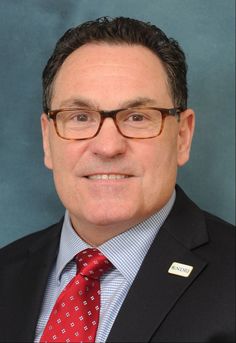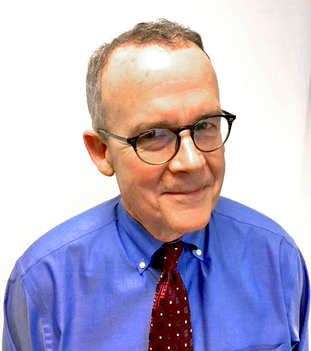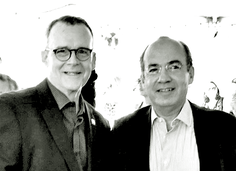|
By Graziella DiNuzzo, Director of Communications and Development  Bill Leinweber, President and CEO of National Disease Research Interchange (NDRI) Bill Leinweber, President and CEO of National Disease Research Interchange (NDRI) Bill Leinweber, President and CEO of National Disease Research Interchange (NDRI) admits that NDRI’s work is complicated, because medical research is complex. For nearly 40 years, NDRI has accepted the challenge of meeting increasing demands of the medical research community, who rely on high-quality, healthy, and diseased biospecimens to conduct lifesaving research. “There is not another organization that does everything we do, “explains Leinweber. “We serve researchers across the full spectrum of the life-sciences and provide everything from brain to miniscule tissues that scientists may need.” The phone rings daily at NDRI, and trained call center staff work 24 hours per day, 7 day per week, 365 days per year to screen offers for tissues and organs from donors ranging from cadaveric to those being evaluated for transplant. The requests are quite specific and follow strict protocol. “We screen all protocol criteria until we have a match. This includes the volume, type of medium, how the biospecimens is preserved (fresh, fixed, or frozen), how it should be shipped, the day the lab will accept it- and the age, sex, and the medication the donor was taking. ” Leinweber describes. NDRI partners with a nationwide network of over 130-tissue source sites, including organ procurement organizations, tissue banks, eye banks, hospitals, and individual donors. As the liaison between procurement sources and the research community, NDRI is supporting major advances in the treatment and cure of human diseases. “In the US there are 58 organ procurement organizations and we work with 56 of them,” emphasized Leinweber. “All deaths that occur in an acute healthcare setting in the United States by law have to be referred to an organ procurement organization for screening, so if someone passes away, even if they are not registered as a donor, their death has to be reported.” Recently, NDRI received an $800,000 National Institute of Health (NIH) grant to support research for Alzheimer’s Disease, Autism, and HIV/AIDS; this in addition to a $6.5 million five-year NIH award given in August 2018 for recovery and distribution of human organs on behalf of the Research resource for Human Tissues and Organs (RRHTO). A unique element of NDRI’s work supported through this agreement is provision and distribution for neurological research supported by the National Institute of Neurological Disorders and Stroke (NINDS). In the last five years, NDRI has provided 884 neurological biospecimens to 79 researchers, including normal and pathological tissues for diseases including ALS, Alzheimer’s disease, Parkinson’s disease, muscular dystrophy, pure autonomic failure, Lewy body dementia and spinal muscular atrophy. The National Heart, Lung, and Blood Institute also provides funds for tissue collection, storage and distribution in support of research into rare lung disease lymphangioleiomyomatosis (LAM), and other heart, lung, and blood tissue research. “For a researcher, acquiring human specimens can be costly.,” Leinweber reminds me, “The fees that are a charged to a researcher by NDRI are about passing on the cost for the procurement of the tissues. Our support from the NIH allows us to provide this service at a discounted rate to scientists supported by the NIH.” NDRI employs 45 full time staff, which includes PhD scientists, a 24/7 call center and executive management. Every order is customized, and some may require additional consultation from NDRI’s expert scientists. “We provide both normal and diseased tissue. Surprisingly, about 60% of what we provide is normal tissue. There may be breast cancer tissue that is removed and the scientist is also interested in the normal tissue that surrounds the cancer that was excised,” Leinweber says. NDRI has supported select research projects including one in partnership with the Cystic Fibrosis Foundation and Vertex Pharmaceuticals. “There is no animal model for cystic fibrosis,” says Leinweber. Using its extensive national network, NDRI provided suitable human biospecimens to support the development of several therapeutic compounds by industry partners that are now helping Cystic Fibrosis patients lead more productive lives. “We continue to work with the Cystic Fibrosis Foundation on the procurement of explanted lungs which were used to support the development of the first and second drugs to treat specific mutations of cystic fibrosis,” adds Leinweber. Identifying therapeutic targets for neuropathic pain is another research project, which investigates alternatives to using opioid-based treatments for pain. Scientists at pharmaceutical companies and academic institutes reached out to NDRI’s dorsal root ganglia (DRG) program which provides researchers with a human model system to study both pain and non-pain neurons. The result? The investigators can experiment directly on human neurons leading to peer-reviewed published medical articles in Nature Medicine and Neuron. For the past 25 years, NDRI has been partnering with Japan’s non-profit organization, Human and Animal Bridging Research Organization (HAB) to facilitate research using non-transplantable tissue from post mortem human donors, which have been extracted for research use in the US and Europe. At one time, extraction of human organs for research and implant was forbidden in Japan. Navigating diverse, global cultural ethics in medical research is challenging. Nevertheless, NDRI remains eager to increase its entry into international markets. Dale Foote, International Trade Specialist for the World Trade Center of Greater Philadelphia (WTCGP), has been assisting NDRI to investigate opportunities in, the UK, Canada, South Korea and Singapore. NDRI has already shipped some biospecimens to China. When asked what obstacles NDRI may have, Leinweber replies, “Science is constantly changing and it becomes both a challenge and an opportunity. It requires us to be able to adapt. We have learned over time that researchers are doing more with less. There was a time when a researcher may have needed a whole liver to conduct a study, maybe now he or she may just need a little bit. Also, 60 to 70% of tissue we provide is fresh tissue v. frozen.” Leinweber paints the picture, “The researcher may be from Phoenix, we may end up getting the eyes from Brigham and Women’s Hospital in Boston, and the donor may have come from somewhere in New Hampshire. Then, we have to get the courier involved, and it’s all happening in real time.” At the end of the day, the entire NDRI team has each had a hand in advancing medical research. From their downtown office in Philadelphia, NDRI is navigating the complex web of delivering the organ and tissues entrusted by donor families. Once the package arrives, there is another team waiting to maximize the use of its precious contents to conduct research in hopes to ultimately extend and save lives. By Graziella DiNuzzo, WTCGP Director of Communications and Development Dr. Nair will be officially inaugurated as President on October 13th. A weeklong series of events entitled: Reimagining Our Higher Education Community: From Inclusion to Justice will begin on October 8th.
Dr. Ajay Nair is the first person of color to be appointed president of Arcadia University, one of the first university presidents in the United States of Indian heritage who was born and raised in Philadelphia and one of the first leaders in higher education to be called a disruptor. Nair credits his parents, who are community leaders and advocates in Philadelphia through the Kerala Art & Literary Association of America, for influencing his desire to serve the community. “At an early age, I was able to better understand that cultures are fluid and dynamic and that we do not and should not live in cultural boxes,” Nair states. Nair’s book, Desi Rap: Hip Hop and South Asian America, co-edited with Murali Balaji, is a collection of essays from South Asian American activists, academics and hip-hop artists who write about racial identity, class status, gender, sexuality, racism and culture. “In many ways, my own unique identity development shaped my interest and scholarship in race and ethnicity.” In the introduction to Desi Rap, Nair writes, “Hip-hop was the language for those of us who rebelled against both the expectations of the Anglo society and of our South Asian parents. Through this genre, we were able to carve out our own identity that allowed us to exist – quite vocally – in the expansive gray area between Black and White.” In the afterword, Nair and Balaji adeptly summarize the essays, “Our voices and actions ultimately yield a kaleidoscope critique of our racial ambiguity and invisibility; we are empowered to evoke our multiplicity through action, reflection, debate and dialogue. Nair entered college in the early 90’s “during turbulent times – racial uprisings in L.A., Mount Pleasant, Crown Heights, Washington Heights, Eastside Lexington, among many political challenges. “Racial and social justice became a primary focus of my work in college and beyond. I wanted to seek positive transformation for our world and I saw higher education as a vehicle for change.” Changing the landscape in higher education has been Nair’s career mission. With leadership and faculty positions at the University of Pennsylvania, Columbia University, the University of Virginia and the World Language Institute in Kwangju, South Korea, Nair has carved his role to be “a difference maker in the lives of students.” Most recently, Nair served as senior vice president and dean of Campus Life at Emory University and has served on a wide range of university and civic boards including as director of the Division for Equity, Inclusion and Social Justice for NASPA (Student Affairs Administrators for Higher Education). “We have a unique opportunity in higher education to discover new ways of knowing and understanding, and we should apply these ways to various societal issues domestically and internationally.” Since his days as a student, Nair admits that today’s students face other challenges. “There is increased scrutiny on higher education because of rising costs, lack of access, poor retention of students, among many things. The value of higher education has been called into question. Many students and families ask, “Is College worth it?” Nair believes Arcadia’s value proposition is clear. “We will help students become both work-ready and life-ready.” Nair was attracted to Arcadia’s bold history, which dates back to 1853 in Beaver, Pennsylvania formerly known as Fort McIntosh, created by General McIntosh of Washington’s Colonial Army during the Revolutionary War. In December of 1853, a charter was granted and Beaver Female Seminary was founded. By 1872, the school was named Beaver College after receiving its college status. In 2000 the board of trustees made an historic decision to change its status and become Arcadia University. Today Arcadia University delivers bachelor’s, master’s and doctoral programs to over 4,000 students and holds its number one ranking for its study abroad program. “Arcadia has always been forward-thinking. This is exciting. This is what we need to build on, and we must continue to be bold through academic, international, extracurricular and campus opportunities.” Nair’s vision for Arcadia and the future of higher education is clear – he sees it as a global destination that delivers an “affordable, distinctive and relevant liberal arts experience. He answers his own question, “How will we get there?” “Arcadia will get there by creating and maintaining a community in which scholars of all cultural backgrounds and thought perspectives are welcome and encouraged in their academic pursuits; a community that attracts and retains the faculty and students that are the best-fit for Arcadia and for whom Arcadia is the best-fit for them. I see a University that doesn’t simply follow best practices, but creates them.” Moving back home to Philadelphia to become the 22nd president of Arcadia University was a dream-come-true for Dr. Ajay Nair. “The rich and diverse heritage of Arcadia, Glenside, Cheltenham, and Philadelphia, as well as the global communities in which Arcadia serve, provide us with an extraordinary platform to be change agents. I feel I’ve been awarded the world.” Meet Joe D’Antonio, Director of International Trade Services - the newest member of the WTCGP team9/25/2018
When Joe D’Antonio isn’t busy having his picture taken with former President of Mexico, Felipe Calderón, you can find him in his new office at the World Trade Center of Greater Philadelphia, at One Penn Center in Philadelphia. Graziella took a few moments of his time to ask him some questions:
How long have you been working in international business? - I first started working extensively in international business as a Director of Training at the Weck div. of Bristol-Myers, Squibb and later as the Director of Global Training for Davis&Geck, the medical device and surgical division of American Cyanamid. As my career progressed, I have held global sales, marketing and business development positions at General Motors, LectraJet and Oakworks. My work at LectraJet was almost exclusively global and included international collaborations with the US/CDC, PAHO, PATH (Gates Foundation), WHO, NIH, and several in-country health agencies in South America, Africa and Asia. Additionally, I have consulted with several international companies, providing assistance with their business development initiatives and managing global joint ventures as an Alliance Manager. These experiences have covered 30+ years of global travel and work. What are some of the highlights of your international career? I have been privileged to have both worked and traveled in over 40 countries. Many of these have included extended work periods including China, India, Brazil, Canada, Mexico, and most of Europe. My work at LectraJet with needle-free vaccine delivery took me to many places around the world, working with health agencies and foundations focused on the elimination of the reuse of contaminated needles from vaccination programs. Perhaps the biggest highlight of my international career was the opportunity to experience first-hand the many cultures and wonderful diversity of the world. It has been a beautiful experience, to meet and work with different people with different opinions, religious beliefs, cultural experiences and to live day-to-day life with them. I celebrated their holidays and family celebrations, discussed global politics, indulged in their cuisine, engaged in international trade, and most importantly; made many life-long friends. What will be your role at the WTCGP? As Director of International Trade Services, I will oversee the trade services program for the WTCGP. I will assist companies in accessing market research and intelligence to select the right market(s) for the company’s product or service, develop international business plans and market entry strategies, identify international customers, distributors, agents, and partners in selected markets. I will advise on trade shows and missions, logistics, regulatory policies and available export financing and grant support. I will oversee the expansion of our China Club to the Asian Club, intended to expand the business reach of our companies and as such, the international business opportunities they can engage with. The WTCGP is constantly seeking new markets and diverse opportunities, giving our clients the competitive advantage and support of a truly global organization focused on their international trade. My primary role is to be part of the team that delivers this truly world class service. Via NDRI PHILADELPHIA, PA., September 20, 2018 — The National Disease Research Interchange (NDRI) has been awarded more than $800,000 by the National Institutes of Health (NIH) to supplement a current $6.5 million grant provided to NDRI that supports continued national leadership with the recovery and distribution of human organs and tissues for medical research over the course of five years. The supplemental awards provide support for NDRI to serve as a human biospecimen resource for research focused specifically on Alzheimer’s disease, Autism Spectrum Disorder (ASD) and HIV/AIDS. The three awards are supplements to NDRI’s Human Tissues and Organs for Research Resources (HTORR) program which has been supported by the NIH since 1987.
The first supplemental award focuses on Alzheimer’s disease and its related Dementias (AD/ADRD). The primary objective of the award is to address current gaps in research by developing a comprehensive AD/ADRD human biospecimen resource that will provide highly-annotated biospecimens from living and post mortem donors with a history of AD/ADRD. This award is provided by the National Institute on Aging and the Office of the Director. The second supplemental award focuses on Autism Spectrum Disorder (ASD). NDRI will provide the NIH’s Neurobiobanks with post mortem brains recovered from donors with a history of ASD that will further research into the etiology of the disorder. A second objective of this work is to collaborate with leading medical research institutions and healthcare professional to identify and recover age-match control brains. This award is provided by the National Institutes of Mental Health and the Office of the Director. HIV/AIDS is the focus of the third supplemental award with an objective to develop an HIV Human Tissue Resource for Large Scale and Cohort-Specific HIV Studies. Through this grant NDRI will provide federally-funded investigators access to a rigorous and uniform collection of human biospecimens obtained from defined cohorts of HIV positive donors with the intent of yielding consistent and reproducible experimental results for groundbreaking studies. This award is provided by the Office of the Director of the NIH. “The combined public health impact of Alzheimer’s disease, Autism Spectrum Disorder and HIV/AIDS is staggering,” said Bill Leinweber, President and CEO of NDRI. “We look forward to supporting these critical research efforts with the expertise and competencies NDRI has demonstrated though our HTORR program.” “It is indeed a privilege for NDRI to be awarded support from the NIH to further leverage the impact of our longstanding efforts to support investigators with the biospecimens needed to advance discovery,” said Mary Hendrix, PhD, President of Shepherd University and Chair of the NDRI Board of Directors. About NDRI The National Disease Research Interchange (NDRI) is the nation’s leading source of human tissues, cells and organs for scientific research. A not-for-profit 501 (c) (3) organization founded in 1980, NDRI is funded in part by the National Institutes of Health, public and private foundations and organizations, pharmaceutical and biotechnology corporations. NDRI is a 24/7 operation that partners with a nationwide network of over 130 tissue source sites (TSS), including organ procurement organizations (OPOs), tissue banks, eye banks, and hospitals. The TSS, are distributed throughout the USA, in 45 states, with concentrations in major metropolitan areas on both the east and west coasts. Their wide geographic distribution allows NDRI to provide biospecimens from donor populations with diverse demographics and also facilitates the timely and efficient provision of fresh tissues directly to researchers across the U.S. and around the world. By serving as the liaison between procurement sources and the research community, NDRI is uniquely positioned to support breakthrough advances and discoveries that can affect advances in the treatment and cure of human diseases. # # # Media Inquiries: Eileen P. Falchetta Director, Marketing & Communications 215-557-7361, ext. 239 [email protected] Via Stockton University For immediate release
Galloway, N.J. – Stockton University is again among the top 10 Public Regional Universities in the North, ranking 9th according to the U.S. News and World Report 2019 “America’s Best Colleges” ranking released today. The university continues to improve its ranking from 14th among public universities in 2017 and 10th in 2018. The university is also ranked 35th among the 187 public and private universities in the North region, an improvement from its ranking of 51st in 2017 and 41st in 2018. Stockton was also included in the U.S. News and World Report listing of 55 “A+ Schools for B Students” in the North. The university ranks 17th overall in the North and 6th among public universities in the “2019 Best Colleges for Veterans” listing. One factor in Stockton’s improvement is the increase in its actual graduation rate as compared with its predicted graduation rate based on student demographics. Stockton’s graduation rate of 73 percent is 15 percentage points higher than its predicted rate of 58 percent. Stockton President Harvey Kesselman called Stockton’s continuing improvement impressive. “The graduation rate is a really important factor because it shows that our students are succeeding beyond expectations,” Kesselman said. “It’s not enough just to get into college. We must also do all we can to make sure our students graduate.” Kesselman credited efforts by faculty and staff to provide ongoing support for students through such programs as CARE (Coordinated Actions to Retain and Educate), the Sankofa Stockton Retention Initiative for minority male students, the Tutoring Centers and Counseling Services. “The staff and mentors who participate in these programs are truly dedicated to our students and it shows in their results,” Kesselman said. Stockton was also selected as one of 225 academically outstanding colleges for the Northeast zone in the 2019 “Best Regional College” listing by The Princeton Review. The university was among 968 universities included in the national 2019 Wall Street Journal/Times Higher Education US College Rankings. Money Magazine included Stockton among 727 colleges nationally in its “Best Colleges for Your Money” listing. # # # Contact: Diane D’Amico Director of News and Media Relations Galloway, N.J. 08205 Diane.D’[email protected] 609-652-4593 609-412-8069 stockton.edu/media |
Categories
All
Archives
July 2023
|





 RSS Feed
RSS Feed